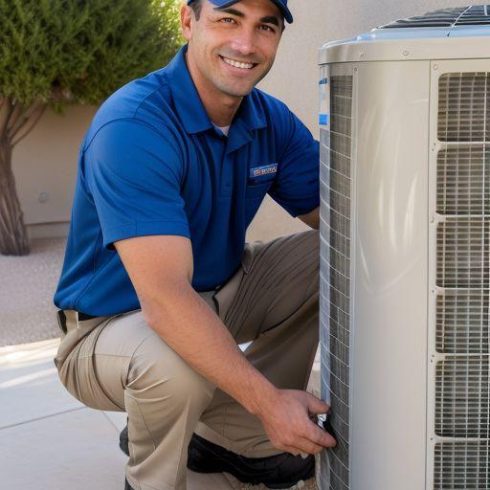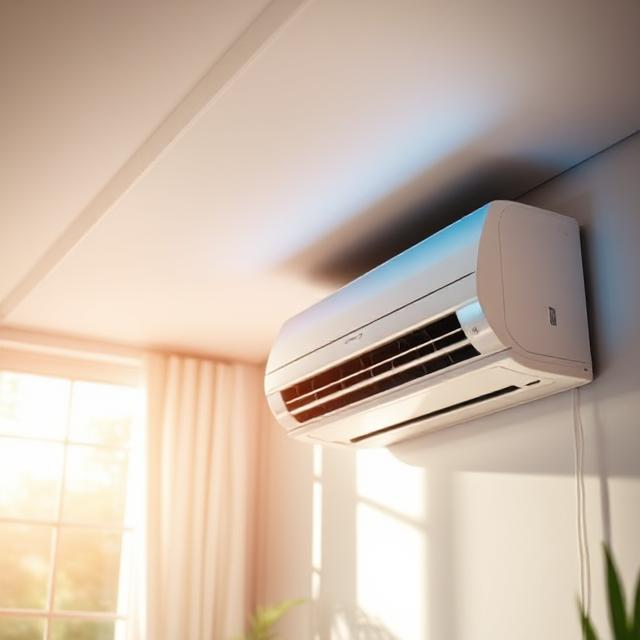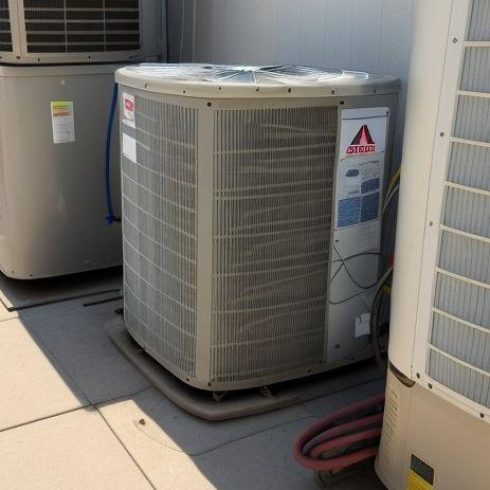Why Is My AC Running But Failing to Cool? Uncover the Mystery
Introduction
When the scorching heat of Palm Desert, CA, sets in, it’s crucial to have a reliable air conditioning system. However, many homeowners face a puzzling situation: their AC units are running, yet they're not cooling the air as expected. If you're scratching your head and asking, “Why is my AC running but failing to cool?” you’re not alone. This article aims to shed light on this common issue and guide you through potential causes and solutions.

Why Is My AC Running But Failing to Cool? Uncover the Mystery
Understanding why your air conditioning unit runs without cooling can be frustrating. The first step in addressing this problem is identifying the underlying cause. Here are some common reasons:
Low Refrigerant Levels
One of the primary reasons an AC fails to cool is low refrigerant levels. Over time, leaks can occur in the refrigerant lines. If your system is low on refrigerant, it won’t be able to absorb heat effectively.
Dirty Air Filters
Clogged or dirty air filters restrict airflow, making it difficult for your AC to cool your home properly. Regular maintenance of these filters is essential for optimal performance.
Faulty Thermostat
A malfunctioning thermostat may not accurately read the temperature in your home, leading to improper cooling cycles. It’s crucial to ensure that your thermostat is functioning correctly.
Blocked Condenser Unit
The outdoor condenser unit needs proper airflow to dissipate heat effectively. If it's blocked by debris such as leaves or dirt, it can’t perform its job efficiently.
Duct Issues
Leaks or blockages within your ductwork can prevent cool air from reaching certain areas of your home, resulting in uneven cooling.
Compressor Problems
The compressor is vital for circulating refrigerant throughout the system. If it’s malfunctioning or has failed entirely, cooling won’t happen effectively.
Electrical Issues
Electrical problems can disrupt power supply and functionality of various components in your HVAC system, causing inefficient cooling.
If you find yourself pondering these issues and want immediate assistance, searching for an "HVAC contractor near me" in Palm Desert can lead you to qualified professionals who can help diagnose and resolve these problems swiftly.
Understanding Your Air Conditioning System
What Are the Main Components of an AC Unit?
To tackle cooling issues effectively, it’s essential to understand how your air conditioning system works:
- This device controls the temperature setting and signals when the air conditioner should operate.
- Located indoors, this coil absorbs heat from inside your home.
- Situated outdoors, this coil releases accumulated heat from refrigerant into the outside air.
- This component circulates refrigerant between the evaporator and condenser coils.
- This valve regulates refrigerant flow into the evaporator coil.
- These passages distribute cooled air throughout various rooms in your house.
Understanding these components helps identify where issues may arise when your system runs but doesn't cool effectively.
How Does Cooling Work?
The cooling process begins when warm indoor air passes over the evaporator coil filled with refrigerant that absorbs heat and turns into a gas. The compressor Anthem Air Conditioning: Palm Desert HVAC Contractor then moves this gas outside where it releases heat through the condenser coil before turning back into liquid form and returning indoors via the expansion valve.
Common Reasons for Lack of Cooling
Low Refrigerant Levels
Low refrigerant levels often stem from leaks or improper installation during initial setup.
Signs of Low Refrigerant
- Increased energy bills
- Hissing or bubbling sounds
- Ice buildup on evaporator coils
Dirty Air Filters
Air filters need regular cleaning and replacement every 1-3 months depending on usage conditions.

Effects of Dirty Filters
- Reduced airflow
- Higher energy consumption
- Increased strain on components
Faulty Thermostat Calibration
Sometimes thermostats lose calibration over time due to wear or external factors like power surges.

Signs Your Thermostat Needs Attention
- Inconsistent temperatures
- No response when adjusting settings
- Display issues
Blocked Condenser Unit
The outdoor unit must remain clear of debris for effective operation; otherwise, performance drops significantly.
Preventative Measures:
- Regular cleaning
- Installing protective covers during off-seasons
Duct Issues
Leaky ducts can lead to a significant loss of cooled air before it reaches intended spaces:
Indicators of Duct Problems:
- Uneven temperatures throughout different rooms
- Visible dust around vents
DIY Troubleshooting Tips
Step-by-Step Guide: What Can You Do?
Check Your Thermostat Settings
- Ensure it's set lower than room temperature.
Inspect Air Filters
- Replace them if they look dirty or clogged.
Clear Debris Around Outdoor Unit
- Remove any leaves or branches blocking airflow.
Check for Ice Buildup
- Look at both indoor coils; ice indicates potential refrigerant issues.
Examine Vents & Ducts
- Make sure no vents are closed or blocked by furniture; check duct connections too.
Listen for Unusual Sounds
- Pay attention if you hear strange noises indicating mechanical failure.
Look at Circuit Breakers
- Ensure all relevant breakers are activated; reset them if necessary.
If none of these steps resolves your issue, it's best to contact an "HVAC contractor near me" for professional help in Palm Desert who can provide a thorough inspection and repair service.
FAQs
1. Why does my AC run continuously but not cool?
Continuous running without cooling could indicate low refrigerant levels or a faulty thermostat that needs replacing.
2. How often should I change my AC filter?
Typically every 1-3 months depending on usage conditions such as pets or allergies affecting indoor air quality.
3. Can I fix my AC myself?
Some minor issues like changing filters or clearing debris can be DIY tasks; however major repairs should be left to professionals.
4. How do I know if my compressor is bad?
Signs include unusual noises coming from outside units or insufficient cooling despite proper settings on thermostats.
5. What should I do if my AC freezes up?
Turn off the unit immediately and allow it time to thaw before calling a technician.
6. When should I call an HVAC contractor near me?
If troubleshooting doesn’t solve problems within a few hours or involves complicated repairs beyond basic maintenance.
Conclusion
Having an air conditioning unit that runs but fails to cool can be perplexing and uncomfortable—especially during those hot days in Palm Desert, CA! By understanding common causes like low refrigerant levels or dirty filters—and knowing how to troubleshoot—you'll be better equipped to handle potential problems before they escalate into costly repairs.
If you've gone through all possible fixes but still can't pinpoint what's wrong with your system? Don't hesitate! Contact an "HVAC contractor near me." A professional will assess your equipment quickly while ensuring reliable results so you can get back enjoying a comfortable living environment again soon!
Feel free always ask questions regarding maintaining healthy systems!